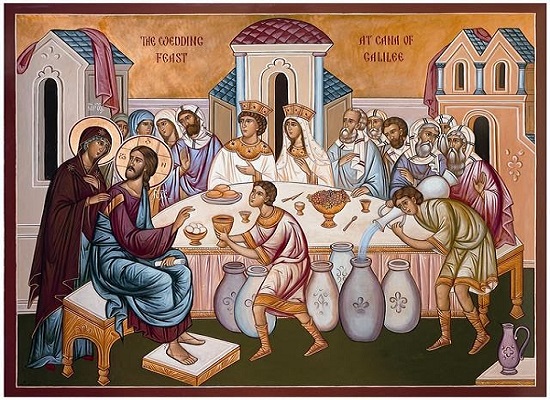On Miracles
15 September 2016
In the name of the Father, the Son and the Holy Ghost.
Time and again we read of miracles in the Gospel and in the Old Testament and indeed, we observe them in the life of the Church through the centuries; miracles of healing, miracles of the renewal of a human life by the power of God. And at times people – we all – ask ourselves, What is a miracle? Is it a moment when God overpowers His own creation, breaks its own laws, destroys something which He has willed Himself? That would be an act of magic, an act of overpowering whatever is unwilling to obey, of overpowering what is weak in comparison to Him Who is strong.
A miracle is something completely different, a miracle is a moment when harmony destroyed by human sin is restored. It may be a moment, it may be the beginning of a whole life: a harmony between God and man, a harmony between the created world and its Creator. It is a restoration of what should always be; not a miracle in the sense of something unheard of, unnatural, perhaps contrary to the nature of things, but rather a moment when God enters into His creation and is received. And because He is received, He can act freely.
We have an example of such a miracle in the story of the marriage at Cana of Galilee, when the Mother of God turned to Christ and said to Him at this poor, peasant feast, “They have no wine”. Their hearts were still hungry for human happiness, for human joy; and yet, the material support of such joy had gone. And Christ says to Her, “What have I to do with Thee, why are you asking Me this question?” And She does not answer Him directly; She turns to the servants and says, “Whatever He may say to you – do it”. She offers Him a perfect act of faith; unreservedly She trusts His wisdom, His love and His Divinity. And at that moment, because a door has been opened by the faith of one person who has drawn into this faith all those who will do what they are told, the Kingdom of God is established, a new dimension of eternity, of infinite depth enters into the world and what is otherwise impossible becomes reality.

And here we are confronted with several things which are necessary for this harmony to be re-established. On the one hand, – a need; a need which is real; it may not be great, but it must be true; and joy and sorrow, illness and un-happiness are equally in need of being absorbed into something greater than the earth, something as vast and deep as the Divine Love and the Divine Harmony.
And then there is the Divine compassion that we have heard of so many times, and the word is repeated here again in today’s Gospel – the feeding of the five thousand: Christ had compassion, compassion which means that He looked at these people who were in need, who could do nothing to alleviate it, and He felt a pain in His Divine Heart, that these people, whose life should be fulfilment, abundance, a glorious joy – that these people should be in obvious need. This time it was hunger, another time it is illness, another time it is sin, another time it is death – it may be anything. But God’s love may be either joy, exulting, glorious joy or crucified, sacrificial pain. And when all this meets then a mysterious harmony is established between the Divine sorrow and the human need, between human helplessness and the power of God, the love of God that expresses itself in all ways, great and small.
Let us therefore learn to be pure enough in heart, pure enough in mind to be able to turn to God with our need without hiding our face; or if we feel unworthy of coming up to Him, let us kneel at His feet and say, Lord – I am unworthy! Unworthy to be in Thy presence, unworthy of being loved, unworthy of Thy compassion, and yet I believe in Thy love more than I am sure of my unworthiness, and I come, because Thou art love and victory; because I have evidence in the life and in the death of Thine Only Begotten Son of what I mean to Thee: the life, the passion, the death, the descent into hell, the horror of it, to save me.
Let us learn this creative helplessness that consists in surrendering all hope of human victory for the sake of the certainty that God can do what we cannot. Let us be helpless in the sense of being transparent, and supple, and listening with all our being, and presenting our need to God – our need of eternal life, but also our needs that are human and frail: the need of support, the need of consolation, the need for mercy. And the response of God will always be the same: If you can believe, however little – everything is possible. Amen.






